Search Results
Coping Tips for Parents
Throughout your child's illness, you'll be focused on comforting your child and helping him or her cooperate with treatment. You may also need to explain what's happening to your other children, answer relatives' questions and perhaps make alternate arrangements for work and childcare. All along the way, you'll be coming to terms with your own feelings and choices.
Diagnosis
Diagnosing hairy cell leukemia usually involves a series of tests, including blood tests and bone marrow tests.
Finding a Clinical Trial
If you're interested in the possibility of a clinical trial as a treatment option, talk with your doctor first. He or she can help you find an eligible trial.
Choosing a Treatment Center
Selecting a cancer treatment center may depend on several factors including your specific diagnosis, location and insurance coverage. You will want to choose an accredited treatment center with the medical expertise to provide the type(s) of treatment you will need.
Communicating With Your Partner
Discussing experiences, feelings and concerns with your partner(s)—giving each other the chance to talk and listen—is an important part of maintaining or improving your quality of life. Your partner may have his or her own concerns, such as being afraid of hurting you during sex, feeling guilty or selfish for wanting to be intimate with you or not knowing how to talk about their feelings. You may also want to talk about seeking help from a professional, such as a couples counselor or sex therapist.
Diet Guidelines For Immunosuppressed Patients
Food safety is important during and after cancer treatments. The immune system is often weakened by cancer treatments, making the body more susceptible to foodborne illnesses.
Neutropenia is a condition where you have lower-than-normal levels of neutrophils (a type of white cell). If you have neutropenia, following food safety guidelines are especially important. Be sure to follow all food handling guidelines to help protect you from bacteria and other harmful organisms found in some mishandled food and beverages.
Stem Cell Transplantation with High-Dose Chemotherapy
High-dose chemotherapy and stem cell transplantation are important parts of treatment plans for eligible, recently diagnosed myeloma patients.
Refractory and Relapsed
Some patients with myeloma have refractory disease. Refractory myeloma is cancer that does not respond to treatment. After a time, almost all myeloma patients will experience relapse, which means the cancer returns after a successful course of treatment. The treatment for relapsed and refractory myeloma is affected by many factors including previous therapy, rate of relapse, patient health, and genetic abnormalities.
Treatment for Relapsed and Refractory MyelomaTreatment for relapsed or refractory myeloma may include:
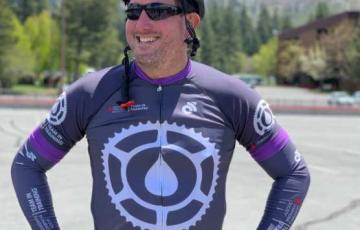
Jamie
After he was diagnosed with blood cancer in 2013, Jamie was told by doctors that he’d never walk again, let alone ride a bike. Despite those predictions, he finished a 540-mile ride in June 2019 to raise money for The Leukemia & Lymphoma Society (LLS).
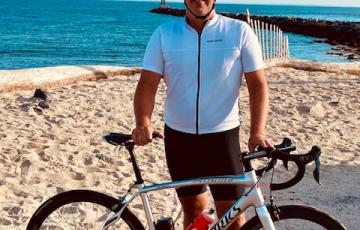
Ira
In August 2014, at age 48, I was literally in the best shape of my life. I was an avid cyclist, averaging more than 150 miles per week, leading groups of riders for my cycling club, and completing multiple 100-mile century rides in a single season. Over the course of just a few days, while cycling, I noticed a sudden setback in my performance. Virtually overnight I lost stamina, speed, and endurance. Roads or hills I had ridden countless times before instantly became unmanageable. Thinking I was battling the flu or a virus, I visited my doctor. Blood tests revealed an abnormality.
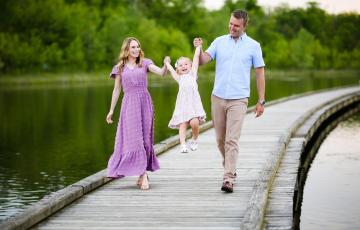
Alicia
You never think it will happen to you until it does. Hearing the idea that you might have cancer was one of the darkest moments of my life. I was diagnosed with acute promyelocytic leukemia (APL) in February 2023 at only 27 years old. I am a mom, a wife, a sister, a daughter, and a pediatric ICU nurse. I am used to taking care of patients on their worst days, but becoming a patient made a huge impact on me and made me a better nurse and advocate for patients/family/friends.
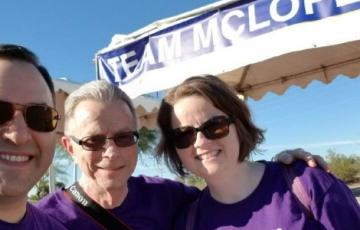
Anne
My story with leukemia began in July 2016 when I was diagnosed with chronic myeloid leukemia (CML). It was four months and 13 days after my wedding to my husband Eddie, and one month to the day after our vow renewal ceremony. What we didn’t realize at the time was that my body had likely been fighting for months. I thought my exhaustion was from wedding planning and running my writing business.
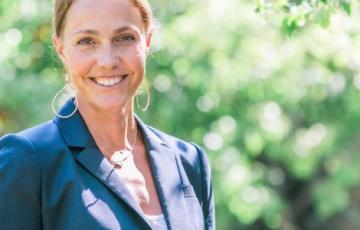
Caroline
In November of 2004, I was in the very best shape of my life. A few months prior, I had run my fastest marathon in San Diego, beating out all of my previous six finishing times in Austin, Nashville, Dallas, New York, and Boston. One month prior, I had completed the Los Angeles triathlon, finishing in the top bracket in my age division. I was even in the process of training to climb Mount Kilimanjaro with my brother. Then my entire world was turned upside down.
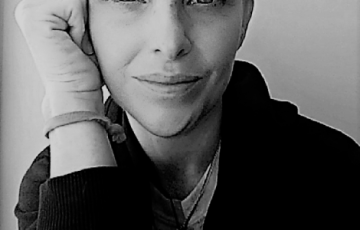
Heather
My name is Heather and I was diagnosed with acute myeloid leukemia (AML) +FLT3/ITD on December 14th, 2017. That morning I noticed I was extremely pale and I had large bruises over my body. My doctor ran blood work STAT and within an hour I knew my platelets were below 20 and I needed to rush to the ER. I was pretty near death at that time. I was in Disseminated Intravascular Coagulation (DIC), which has a pretty high mortality rate.
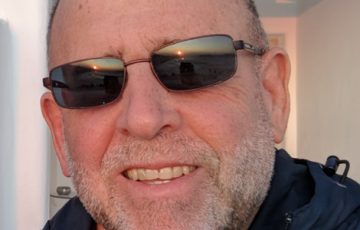
Andrew
When I write about the fact that I have cancer, it is not my intention to suggest that I am in any way unique. Although when I was first diagnosed with non-Hodgkin's lymphoma in 2010, I did feel special, and not in a good way. At first, I thought I had a hernia. But the surgeon said no. It took almost two months for the biopsy of the lymph node that he extracted from my body to be definitively identified. They sent it to Bethesda for further analysis. Still no answer. I then had a second biopsy.

Doug
I have always been a builder. Professionally, I am an architect. You could say that I’ve spent my life building spaces where people could grow. I never imagined, however, that I would someday have to rebuild my own. In February 2015, after experiencing months of excruciating and debilitating back pain that doctors mistakenly attributed to deteriorating lower lumbar discs, I had an MRI that revealed multiple vertebral compressed fractures.
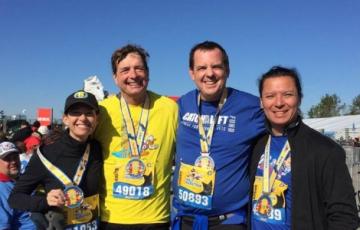
Douglas
My story begins almost 24 years ago in 1996, when I was diagnosed with cancer, chronic lymphocytic leukemia (CLL). Back then, there was no cure for CLL except for a bone marrow transplant (BMT), but that procedure only had a survival rate of 50%, not very attractive odds. My prognosis was I had anywhere from six to 15 years without a BMT.
Heather
The Leukemia & Lymphoma Society’s Light The Night Walk serves as an inspiring, empowering and comforting event, made possible by those who share, remember, and advocate for the fight against cancer. Each year, we here at LLS are graced with countless stories that demonstrate and display the spirit of this event. Heather Lee’s story is one of them.
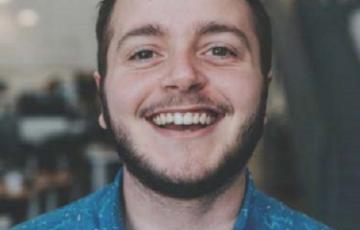
Spencer
I am a 27-year-old transgender man who won a hard-fought battle with stage 3 Hodgkin lymphoma just after graduating from college. My story begins with a good friend. One night, we were hanging out around the house and they caught a glimpse of my neck under a particular light and said, “Hey, come here for a second, your neck looks pretty swollen.” We both looked in the mirror and noticed something protruding from the space where the left side of my neck met my clavicle. I called my doctor’s office and made an appointment for the next day.
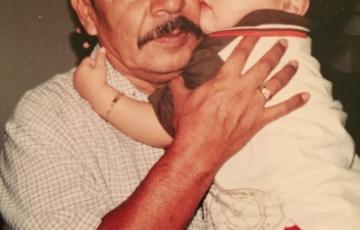
Jesus E.
My grandpa was diagnosed with non-Hodgkins lymphoma (NHL) in 2007. It turned our world upside-down. You always hear these stories of families going through the motions of this disease but never personalize it until it actually happens to someone you love.
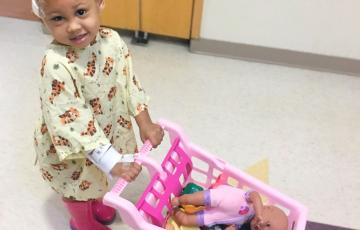
Jaleah
In April 2018, our lives were forever changed when we found out that our sweet Jaleah, full of life and personality, had cancer. Sometimes life is unfair — to sit there helpless and scared and then hear the doctor say, “Your child has cancer,” was pure devastation and the worst day of our lives! These words should never be heard by any parents.
We got transferred the next day to Duke Children’s Hospital, and I was still in disbelief. How could my sweet snuggly baby, who has a history of good health, loves to eat, and bury her head into my shoulder, have cancer?
Sarah
I was diagnosed with B-cell acute lymphoblastic leukemia (B-cell ALL) in October 2020 at the age of 38. It was a shocking diagnosis. I started feeling bad in September with extreme fatigue and some body aches, nothing terribly alarming. I'm a busy wife and mom of two young kids (ages 2 and 8 at the time of diagnosis) with a full-time job and two new puppies. I figured I was just worn out from everything. I had routine bloodwork scheduled for my annual physical. When my primary care doctor received the results, he called and asked me to go to the emergency room.
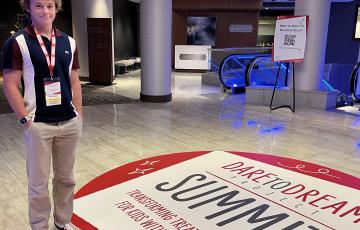
Will
In April 2021, as I was just starting to emerge from the COVID-19 pandemic, I started to feel unwell. I was suddenly very tired and could not finish a soccer match. My family and I decided to reach out to our family doctor and look into my fatigue; we were not worried at all. We attributed my symptoms to adolescence and growth, and so did our doctor at first.
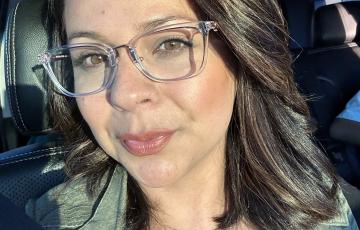
Elizabeth
On November 8, 2021, I was diagnosed with stage III multiple myeloma (MM), an incurable cancer. Prior to being diagnosed, I thought I was a healthy young woman and was just living life with my children. I would have different pains throughout my body, but I didn't think much about it and would ignore them for the most part. The pains throughout my body were getting more and more frequent, so I went to the ER in October 2021 because I was in pain and could not eat, they said I was possibly having acid reflux and gave me a prescription for nausea.
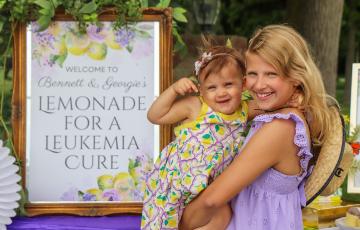
Judith
In 2016, my Mom/daughter's grandma, Baba (Judith W), was diagnosed with acute myeloid leukemia (AML). After her first round of chemo, she was discharged from a one-month hospital stay on my daughter's third birthday. Best birthday present ever. She continued fighting the disease with more chemo and ultimately received a stem cell transplant from an amazing donor. Amid the uncertainties of her recovery, we hosted our first lemonade stand fundraiser on Mother's Day weekend the following year in hopes of helping.